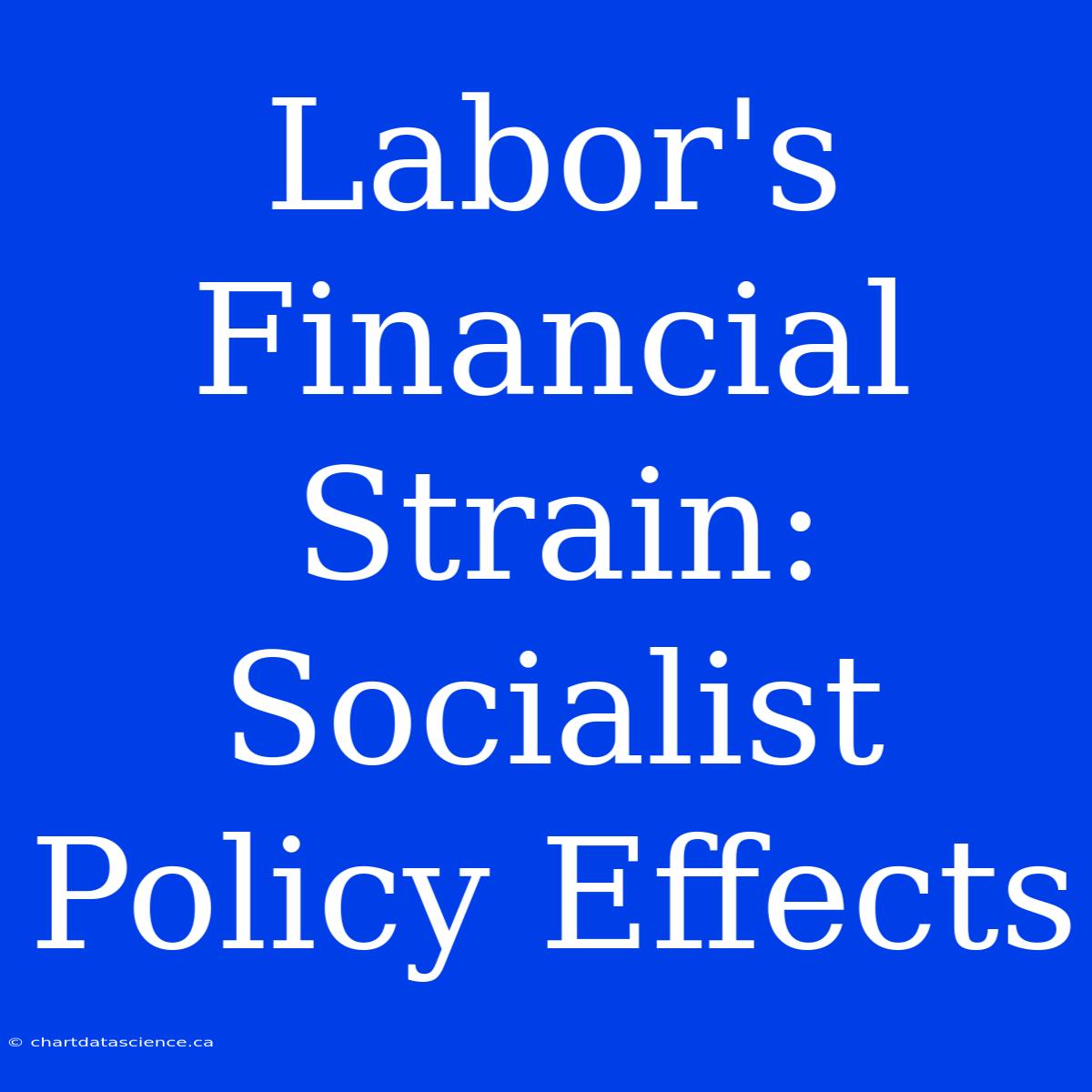Labor's Financial Strain: Socialist Policy Effects
The relationship between socialist policies and labor's financial strain is a complex and often hotly debated topic. While proponents argue that socialist policies can help to alleviate financial strain by redistributing wealth and providing social safety nets, critics argue that such policies can stifle economic growth and ultimately lead to higher unemployment and increased poverty.
Understanding the Debate
To understand the debate, it's important to define what is meant by "socialist policies." Generally, these refer to policies that aim to create a more equitable society by redistributing wealth, nationalizing industries, and providing social services like universal healthcare and free education.
Potential Benefits of Socialist Policies
Advocates for socialist policies argue that they can help to alleviate financial strain by:
- Redistributing Wealth: Higher taxes on the wealthy can be used to fund social programs that benefit lower-income workers.
- Providing Social Safety Nets: Unemployment benefits, universal healthcare, and subsidized housing can provide a safety net for workers who lose their jobs or experience unexpected financial hardship.
- Promoting Economic Equality: Socialist policies aim to create a more equitable society, which can lead to greater economic stability and reduced income inequality.
Potential Drawbacks of Socialist Policies
Critics of socialist policies argue that they can:
- Stifle Economic Growth: High taxes and government regulation can discourage investment and innovation, leading to slower economic growth.
- Increase Unemployment: Government intervention in the economy can lead to inefficiencies and reduce the number of jobs available.
- Lead to Higher Taxes: Funding social programs requires higher taxes, which can put a strain on individual households and businesses.
Real-World Examples
The impact of socialist policies on labor's financial strain can be seen in various countries around the world. For example, Scandinavian countries like Sweden and Denmark have implemented strong social safety nets and have relatively low levels of income inequality. However, these countries also have high taxes, and some argue that their economic growth has been slower than in other developed nations.
The Complexity of the Issue
The relationship between socialist policies and labor's financial strain is complex and depends on a variety of factors, including the specific policies implemented, the economic conditions of the country, and the overall political climate. There is no simple answer, and the debate is likely to continue for years to come.
Conclusion
While socialist policies can offer potential benefits in terms of alleviating financial strain and promoting economic equality, they also carry potential drawbacks that can impact economic growth and employment. It's crucial to analyze each policy's potential impact on workers and the overall economy before implementation. Ultimately, the best approach to address labor's financial strain is through a combination of policies that promote economic growth and provide a social safety net for those in need.

